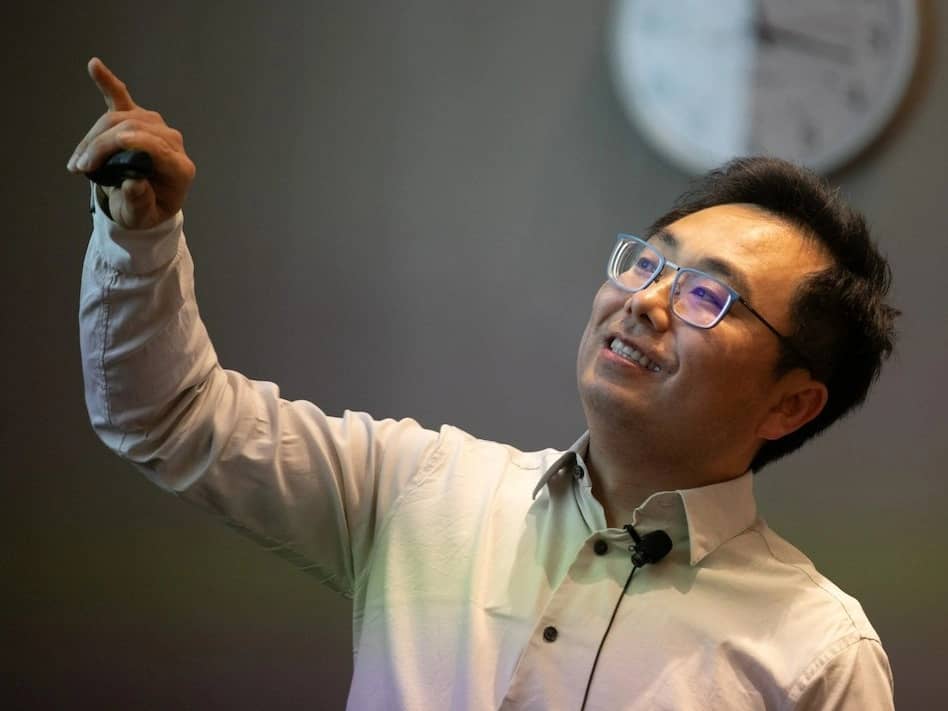Subscribe to wiki
Share wiki
Bookmark
Shuchao Bi
The Agent Tokenization Platform (ATP):Build autonomous agents with the Agent Development Kit (ADK)
0%
Shuchao Bi
Shuchao Bi is an artificial intelligence researcher known for his work on multimodal systems, reinforcement learning, and large-scale model training. He is currently an AI researcher at Meta's Superintelligence Labs (MSL), where he contributes to the development of foundational AI systems. [1]
Education
Bi graduated with a Bachelor’s in Mathematics from Zhejiang University. He then earned a Master’s in Statistics and a PhD in Mathematics from the University of California, Berkeley. [2]
Career
Bi began his career as a Graduate Student Instructor at the University of California, Berkeley, from 2007 to 2012, where he taught undergraduate mathematics courses. During this time, he also held internship roles at Bloomberg LP in 2011 and Credit Suisse in 2012, working on quantitative finance problems involving derivative pricing models and statistical arbitrage.
From 2013 to 2019, Bi worked at Google as a Tech Lead Manager, where he developed deep learning models to optimize Google Ads performance. He then joined YouTube in 2019, serving as Director of Engineering and Head of YouTube Shorts Discovery until 2024. In that role, he co-led the development of YouTube’s short-form video product and oversaw the engineering of content discovery systems, including ranking, recommendation, and video understanding.
In May 2024, Bi joined OpenAI as Head of Post-training for Multimodal models. He leads a research organization focused on areas such as reinforcement learning from human feedback (RLHF), multimodal reasoning across image, video, and audio, model evaluation and reward modeling, vision-language-action models for embodied AI, and cross-modality intelligence. [3]
Superintelligence Labs (MSL)
Superintelligence Labs (MSL) is a division within Meta, launched in June 2024, to unify and accelerate the company’s artificial intelligence initiatives, particularly in pursuit of artificial general intelligence (AGI). Led by Alexandr Wang and Nat Friedman, MSL brings together teams working on foundation models, applied AI products, and core research from FAIR. The unit was formed alongside a major talent acquisition campaign, hiring researchers from OpenAI, Anthropic, and DeepMind, and follows Meta’s $14.3 billion investment in Scale AI. MSL oversees the development of Meta’s Llama model series and next-generation AI systems, with a focus on long-term advancements and integration across Meta’s consumer platforms. [4] [5]
Presentations
Silicon Intelligence
In a talk about advancements in artificial intelligence at Columbia University, Bi discussed the evolution of machine learning, detailing its origins around 1948 and the significant developments that followed. He highlighted the emergence of self-supervised learning and reinforcement learning, emphasizing breakthroughs such as deep learning models that surpassed human-engineered algorithms, the introduction of optimization methods like Adam, and innovations in neural network architectures, including residual networks and transformers. The discussion addressed the state of generative AI and scaling laws, noting that compute power and large datasets drive performance improvements.
Although he acknowledged existing limitations in AI's capacity for reasoning and the complexity of human intelligence, Bi expressed optimism about future advancements in AI, including the exploration of new capabilities and the integration of human learning processes into developing more efficient algorithms. Open problems were identified, focusing on improving data efficiency and the challenges of scaling and generating high-quality data, ultimately envisioning a future where AI could significantly enhance scientific discovery and personal learning. [6]
See something wrong?
The Agent Tokenization Platform (ATP):Build autonomous agents with the Agent Development Kit (ADK)
